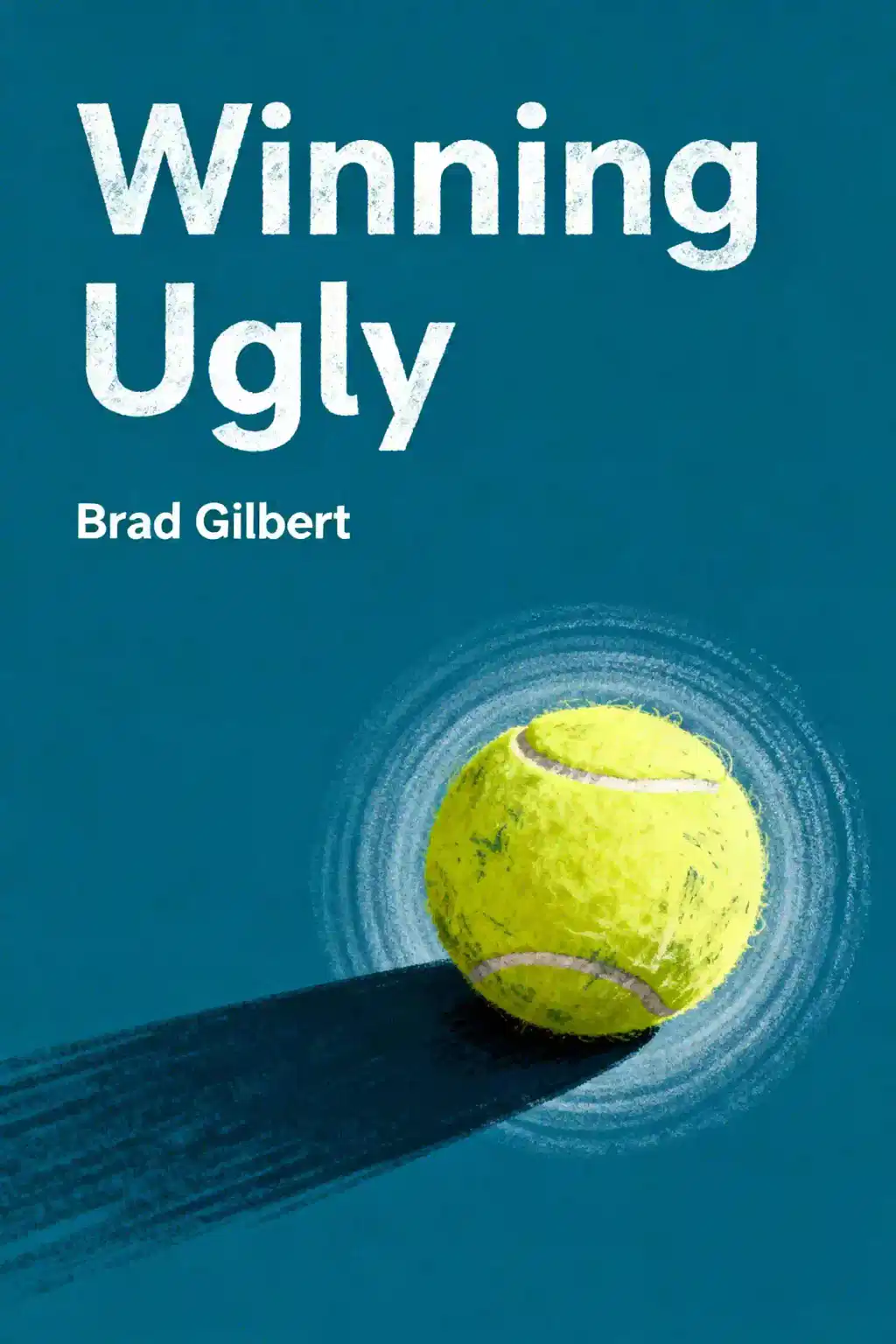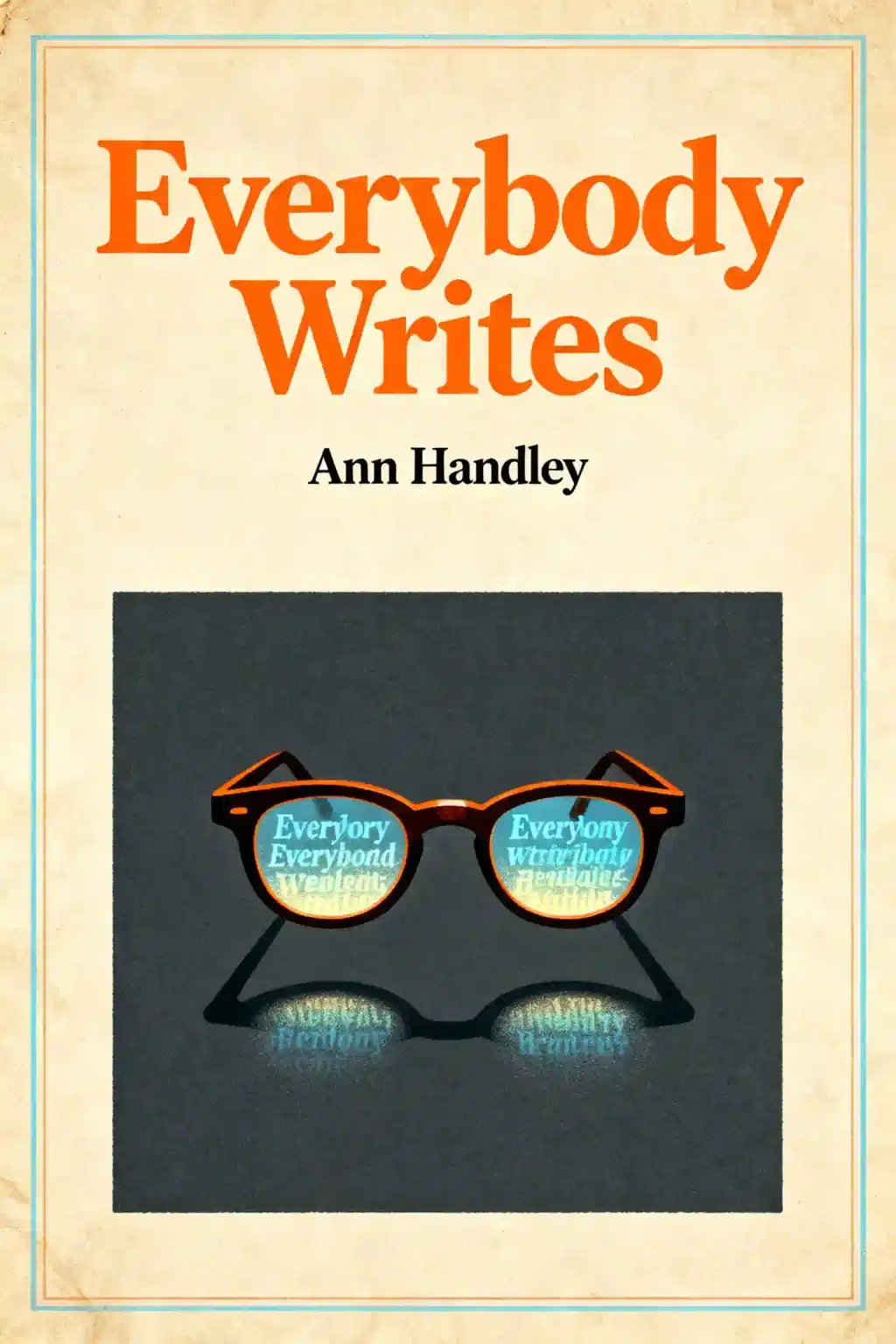What is Winning Ugly by Brad Gilbert about?
Winning Ugly by Brad Gilbert is a tennis strategy book focused on mental warfare and tactical play rather than physical prowess. Gilbert teaches players how to win matches through smart decision-making, exploiting opponents' weaknesses, and maintaining mental toughness. The book emphasizes that 80% of matches are decided by psychology and tactics, showing recreational and professional players how to beat better opponents without playing better tennis.
Who is Brad Gilbert and why did he write Winning Ugly?
Brad Gilbert is a former world No. 4 tennis player and Olympic bronze medalist who reached the top despite lacking powerful weapons like a devastating serve or forehand. His unorthodox style relied on footwork, tactics, and mental strategies. Gilbert wrote Winning Ugly to share his philosophy that players don't need superior talent to win—they need superior thinking, pattern recognition, and the ability to disrupt opponents' game plans through strategic play.
Who should read Winning Ugly by Brad Gilbert?
Winning Ugly is ideal for recreational tennis players seeking to win more matches without improving their strokes, competitive players struggling with mental aspects of the game, and coaches looking for tactical insights. The book particularly benefits players who feel physically outmatched by opponents, as Gilbert demonstrates how smart strategy and mental toughness can overcome superior athleticism. Pickleball players and athletes in other racquet sports also find value in its psychological principles.
Is Winning Ugly worth reading in 2025?
Winning Ugly remains relevant because its mental warfare principles transcend specific tennis eras. While some references to 1990s players feel dated and Gilbert's "cornball" writing style may not appeal to everyone, the core tactical concepts—exploiting weaknesses, managing match tempo, and outthinking opponents—are timeless. The third edition includes updated analysis of modern champions like Serena Williams, Rafael Nadal, and Novak Djokovic, demonstrating how these strategies still apply to today's game.
What is the main philosophy behind Winning Ugly?
The central philosophy of Winning Ugly states that 10% of matches you'll lose regardless of what you do, 10% you'll win no matter what, and 80% are up for grabs based on tactics and mental approach. Brad Gilbert argues that most players go onto the court "brain dead," focusing only on mechanics instead of analyzing patterns, exploiting weaknesses, and making strategic adjustments. Success comes from recognizing opportunities and capitalizing on opponents' mistakes rather than hitting perfect shots.
What are the key strategies taught in Winning Ugly by Brad Gilbert?
Winning Ugly teaches players to recognize, analyze, and capitalize on patterns during matches. Key strategies include:
- Destroying opponents' game plans
- Identifying and attacking weaknesses
- Controlling match tempo through tactics like "DRM" (Don't Rush Me)
- Using pre-match preparation rituals
- Maintaining mental alertness throughout
Gilbert emphasizes making opponents uncomfortable through strategic shot placement, keeping balls in play, and never giving away free points. The goal is making adversaries not want to play you.
How did Winning Ugly influence Andre Agassi's career?
After reading Winning Ugly, Andre Agassi hired Brad Gilbert as his coach in 1994. Under Gilbert's guidance, Agassi transformed from an underachieving talent into world No. 1 within twelve months. Gilbert taught Agassi to channel his superior strokes through smarter tactical decisions, developing what became known as "Braditude." During their eight-year partnership (1994-2002), Agassi won six Grand Slam titles and an Olympic gold medal. Agassi later described Gilbert as "the greatest coach of all time."
What does "winning ugly" actually mean in tennis?
"Winning ugly" means prioritizing victory over aesthetic play—focusing on the scoreboard rather than hitting beautiful shots. Brad Gilbert advocates for grinding out wins through consistency, smart tactics, and forcing errors rather than attempting flashy winners. This approach involves hitting safe shots that exploit opponents' weaknesses, disrupting their rhythm through pace changes and shot placement, and accepting that matches can be won without perfect form or dominant weapons.
What is the "DRM" strategy in Winning Ugly?
DRM stands for "Don't Rush Me," a tempo-control tactic Brad Gilbert emphasizes throughout Winning Ugly. Players use small rituals between points—touching strings, tying shoes, repositioning towels, or touching a courtside object—to maintain their preferred rhythm and disrupt opponents' momentum. This strategy prevents hurried decision-making, allows time for tactical adjustments, and gives players mental recovery between points. Gilbert notes that rushing is among the most common errors tennis players make.
What are the criticisms of Winning Ugly by Brad Gilbert?
Critics note that Winning Ugly's writing feels dated, with a "pre-internet voice" and sometimes corny anecdotes (like starting chapters with quotes from Gilbert's mother). Some readers find the advice resembling "grandma's home remedies" rather than scientific coaching. The heavy focus on 1990s players like Jim Courier doesn't age perfectly. However, many readers appreciate this earnest simplicity and note that Gilbert's unconventional tactics—though unscientific—produce results. The book's "do what works" philosophy resonates despite stylistic quirks.
How does Winning Ugly compare to The Inner Game of Tennis?
While both are tennis psychology classics, Winning Ugly by Brad Gilbert focuses on tactical warfare and exploiting opponents' weaknesses, whereas The Inner Game of Tennis by Timothy Gallwey emphasizes internal mental development and quieting self-doubt. Gilbert's approach is external and strategic—analyzing opponents and adjusting tactics. Gallwey's method is introspective—overcoming mental barriers within yourself. Winning Ugly offers concrete match strategies and pattern recognition, while Inner Game provides broader mindfulness principles applicable beyond tennis.
Can Winning Ugly principles apply to other sports or business?
Yes, Winning Ugly's principles extend beyond tennis to competitive situations requiring strategic thinking. The concepts of exploiting weaknesses, controlling tempo, maintaining mental composure under pressure, and outthinking opponents apply to business negotiations, sales, and career advancement. Gilbert's philosophy that success comes from smart preparation rather than superior resources resonates with entrepreneurs and professionals facing better-funded competitors. The 80/20 principle—that most outcomes are determined by mental approach—translates to any competitive environment requiring tactical adaptation.














